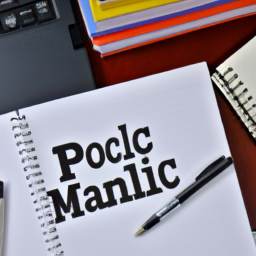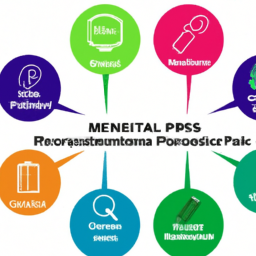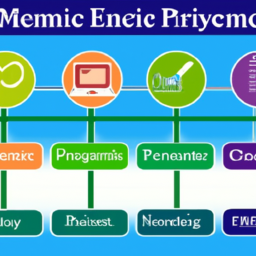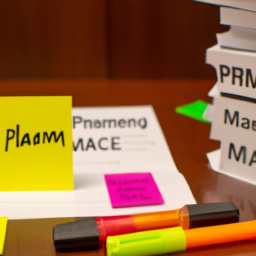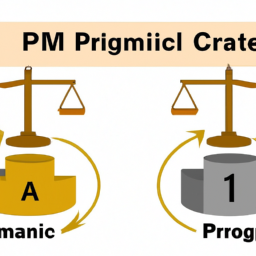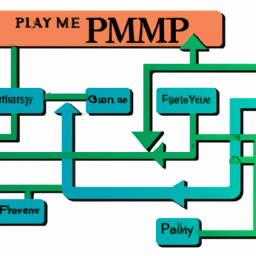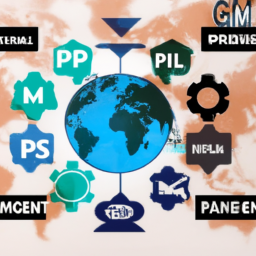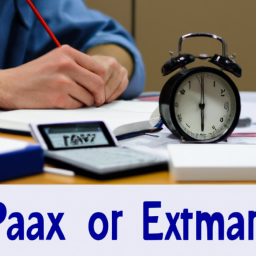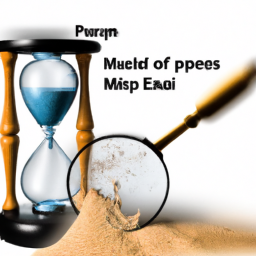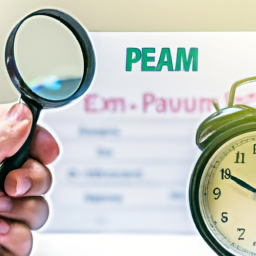Are you ready to unlock the key strategies that will lead you to success in the PMP exam?
With our expert guidance, you’ll be equipped with the knowledge and skills needed to conquer this challenging test.
Get ready to dive into the structure of the exam, develop an effective study plan, and master crucial project management concepts.
By utilizing practice tests and implementing time management techniques, you’ll be well-prepared to achieve your PMP certification.
Let’s begin this journey towards success together!
Key Takeaways
- Thorough exam preparation is essential
- Practice tests and sample questions are helpful
- Prioritize topics and allocate dedicated time for each
- Master key project management concepts
Understanding the PMP Exam Structure
Understanding the PMP exam structure is crucial for achieving success.
When it comes to the PMP exam, it is important to familiarize yourself with the format and types of questions you will encounter. The exam consists of 200 multiple-choice questions that test your knowledge of project management concepts, processes, and best practices. These questions are designed to assess your understanding of the PMBOK Guide, which is the main reference for the exam.
To succeed in the exam, thorough exam preparation is essential. This includes studying the PMBOK Guide, taking practice tests, and reviewing sample PMP exam questions. By understanding the structure of the exam and investing time in exam preparation, you will be better equipped to tackle the questions and increase your chances of success.
Developing an Effective Study Plan
To develop an effective study plan for the PMP exam, it’s important to prioritize topics and allocate dedicated time for each.
Creating a supportive study environment is crucial for success. Find a quiet space where you can focus without distractions. Organize your study materials and ensure you have access to resources such as textbooks, practice exams, and online forums.
Setting realistic goals is another key aspect of your study plan. Break down the topics into manageable chunks and set specific targets for each study session. This will help you stay motivated and track your progress.
As you develop your study plan, keep in mind that mastering key project management concepts is essential for passing the PMP exam. Understanding these concepts will form the foundation of your knowledge and increase your chances of success.
Mastering Key Project Management Concepts
Focus on mastering the core concepts of project management to enhance your understanding and improve your chances of passing the PMP exam. By applying project management techniques and analyzing real-world case studies, you can develop a solid foundation of knowledge and skills.
Here are five key strategies to help you in mastering these concepts:
-
Familiarize yourself with the Project Management Body of Knowledge (PMBOK) Guide, which serves as the foundation for the PMP exam.
-
Understand the five process groups: initiating, planning, executing, monitoring and controlling, and closing. Learn how they interact and influence each other.
-
Gain a deep understanding of the ten knowledge areas, such as scope, time, cost, quality, and risk management. Understand their processes, inputs, tools, and techniques, and outputs.
-
Practice applying project management techniques through hands-on exercises and simulations. This will help you develop critical thinking and decision-making skills.
-
Analyze real-world case studies to understand how project management concepts are put into practice in different industries and scenarios.
Utilizing Practice Tests and Mock Exams
By utilizing practice tests and mock exams, you can gauge your readiness for the PMP exam and identify areas that require further study. Exam simulation is a powerful tool that allows you to experience the format and structure of the actual exam. It helps you become familiar with the types of questions that may be asked and the time constraints you’ll face. Additionally, it enables you to practice your test-taking strategies, such as time management and question prioritization. Mock exams, on the other hand, provide a comprehensive assessment of your knowledge and understanding of the PMP exam content. They give you the opportunity to identify your strengths and weaknesses, allowing you to focus your efforts on areas that need improvement.
| Benefits of Exam Simulation and Mock Exams |
|---|
| Gauge readiness for the PMP exam |
| Experience the exam format and structure |
| Practice test-taking strategies |
| Identify strengths and weaknesses |
| Focus efforts on areas that need improvement |
Implementing Time Management Techniques
Implementing time management techniques will help you effectively allocate your study time and ensure that you are able to cover all the necessary topics for the PMP exam. To make the most of your study sessions, consider the following strategies:
- Prioritize your study topics based on their importance and relevance to the exam.
- Break down your study time into manageable chunks, allowing for focused learning and retention.
- Use a planner or digital tool to track your study progress and ensure you are staying on track.
- Allocate more time to challenging topics or areas where you need improvement.
- Take regular breaks during your study sessions to prevent burnout and maintain productivity.
By effectively prioritizing your study topics and implementing time tracking techniques, you can maximize your study time and increase your chances of success in the PMP exam.
Stay organized, stay focused, and stay committed to your study plan.
Frequently Asked Questions
What Are the Eligibility Requirements to Take the PMP Exam?
To take the PMP exam, you must meet certain eligibility requirements. These include having a secondary degree, such as a high school diploma or associate’s degree, and accumulating a minimum of 35 hours of project management education.
Additionally, you need to have at least 4,500 hours of project management experience if you have a secondary degree, or 7,500 hours if you have a four-year degree.
Meeting these requirements is crucial when preparing for the PMP exam.
How Long Is the PMP Exam and How Many Questions Are Included?
The PMP exam duration is four hours. During this time, you will need to answer a total of 200 multiple-choice questions.
These questions are presented in a format that assesses your understanding of project management concepts, tools, and techniques.
It is important to manage your time effectively and stay focused throughout the exam. Remember to read each question carefully and use your knowledge and experience to select the best answer.
Can I Use Any Study Materials or Resources During the PMP Exam?
During the PMP exam, you may be wondering if you can use any study materials or resources. Well, the answer is no.
The PMP exam is designed to test your knowledge and understanding of project management principles and practices. Therefore, you are not allowed to use any external resources during the exam.
However, there are tips and strategies you can follow to maximize your study materials and ensure success on the PMP exam.
Are There Any Specific Project Management Methodologies or Frameworks That Are Covered in the PMP Exam?
Yes, there are specific project management methodologies and frameworks that are covered in the PMP exam. These include Agile methodologies, which focus on flexibility and adaptability, and Waterfall frameworks, which follow a linear and sequential approach.
Understanding these methodologies and frameworks is crucial for the exam as they are widely used in the project management industry. Familiarizing yourself with their principles and processes will help you successfully navigate the PMP exam.
Is the PMP Exam Available in Languages Other Than English?
Did you know that the PMP exam is available in languages other than English? This is great news for non-native English speakers who want to pursue their project management career.
The language options help ensure that candidates can understand and demonstrate their knowledge effectively.
Additionally, the exam duration is four hours, giving you ample time to showcase your skills and expertise.
Conclusion
Congratulations on completing the article! You’ve now unlocked the key strategies to success in the PMP exam.
Just like a ship navigating through treacherous waters, your study plan will guide you towards your destination of passing the exam.
Remember, practice tests and mock exams are like buoys along the way, helping you gauge your progress.
And just as a captain manages time to reach their destination, implementing time management techniques will ensure you stay on course.
So, set sail with confidence and let the winds of success carry you to PMP certification!

